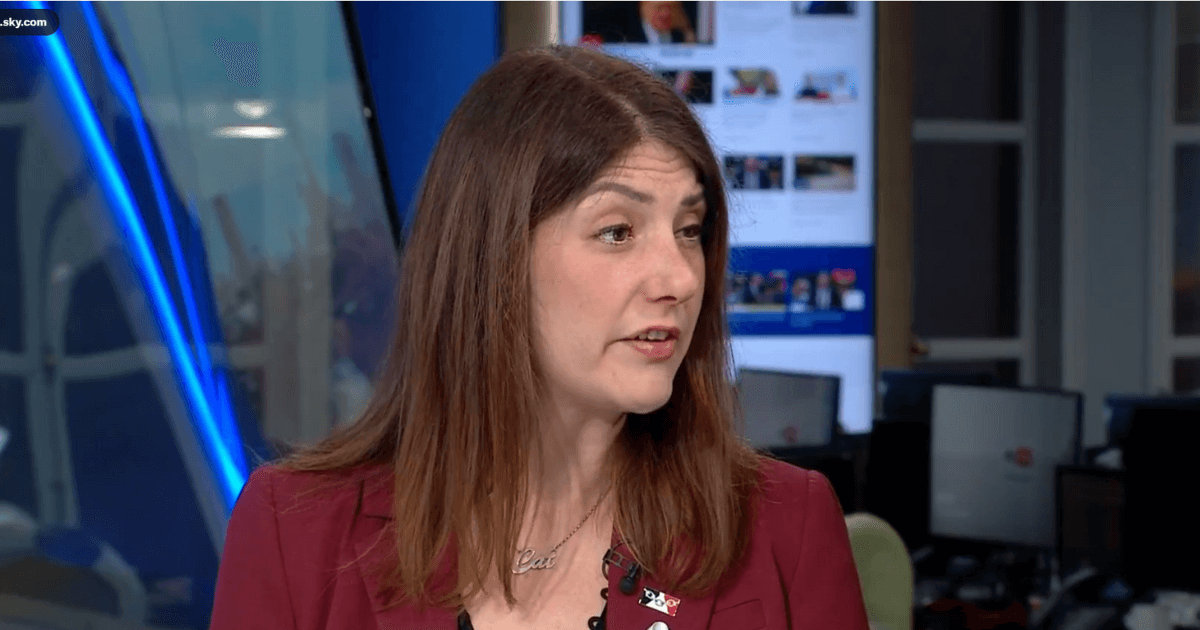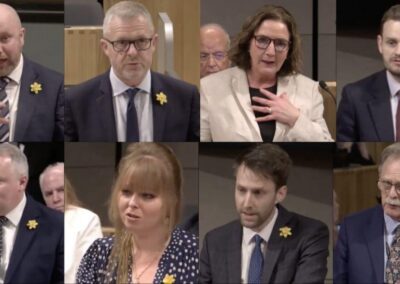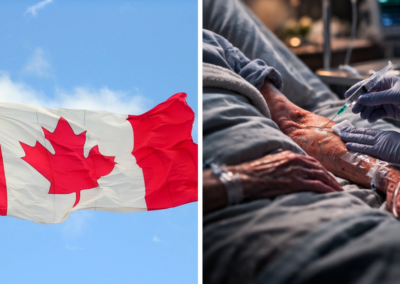MPs who are trying to introduce assisted suicide in England and Wales have said that talking a loved one out of ending their life through assisted suicide is ‘coercion’.
In an interview on Sky News the day before Second Reading of the assisted suicide Bill, Labour MP Cat Eccles claimed that, in those jurisdictions in which assisted suicide is legal, coercion “actually happens with relatives trying to talk loved ones out of having an assisted death”.
The presenter, Kay Burley, said “People who are against [the Bill] come on the programme and say to me, [they are] worried about people being coerced by relatives and loved ones into doing something that they perhaps don’t want to do”.
Eccles replied, “Yeah well actually the evidence we’ve seen from other countries that have introduced assisted dying laws is that the most coercion that actually happens [is] with relatives trying to talk loved ones out of having an assisted death”.
In response to Eccles’ claim, one X user said “Eight years ago I had a full mental breakdown, due to work burnout. I was standing in my kitchen with a knife in my hand. My wife ‘coerced’ me to put it down and seek help but you @catecclesstour would happily see me dead”.
During the debate at Second Reading, Kim Leadbeater also suggested that the true source of coercion arose from family members who tried to prevent someone from choosing assisted suicide.
In the debate, Independent MP Richard Burgon made an intervention about the possibility of people being coerced into ending their lives and his concerns about people ending their lives over fear of being a burden. In response, Leadbeater said “Evidence from other jurisdictions shows clearly that coercion tends to happen the other way; what tends to happen is that families try to prevent the person from making the choice of an assisted death”.
In Queensland, Australia, where assisted suicide and euthanasia have been legal since 2021, it is a crime to coerce another person to “revoke a request for access to voluntary assisted dying”.
Evidence of “self-coercion”
During the debate on Friday (29 November), Mother of the House Diane Abbott, Danny Kruger, Rachael Maskell, Dr Ben Spencer, Tim Farron, Anna Dixon and Carla Lockhart all discussed the potential for coercion into assisted suicide that this Bill creates.
Kruger, Farron and Maskell made particular reference to the problem of “self-coercion”, an issue that the Bill does not even attempt to address, where a person ends their life or is tempted to end their life, in order to avoid being a burden.
Of the thousands of people who have ended their lives by assisted suicide in Oregon since 1997, 47.1% listed “Burden on family, friends/caregivers” among their end-of-life concerns.
Tim Farron said “[T]here is the risk of self-coercion. Many of us will have heard older relatives utter words similar to, ‘I am a burden to you. You would be better off without me.’ We all know reasonably instinctively that people will present it as making a sovereign choice, but it will be a choice born out of coercion. Unless there is a clause in the Bill that I have missed to employ mind readers, no amount of doctors, safeguards or bureaucratic mechanisms will prevent those who self-coerce from opting to die simply because they assume that no matter what their loved ones say, everyone would be better off if they were dead”.
Kruger referred to self-coercion, as opposed to external coercion from others such as family and the state, as the “bigger danger”.
“The Bill has nothing to say on that. Internal pressure is absolutely fine. If you feel worthless or a burden to others, if the NHS will not offer you the treatment you need, if the local authority will not make the adjustments you need to your home, if you have to wait too long for a hospital appointment, or if you want to die because you think the system has failed you, that is absolutely fine”, he said.
Labour MP Rachael Maskell made the same point saying “Intrinsic coercion is very real, not least where the law has changed—rapidly becoming an expectation, verbalised as a duty to die. In fact, not wanting to be a burden is cited as a major reason to opt for an assisted death, alongside loss of dignity, loneliness, and needing personal care, yet every day, disabled people live in this reality”.
Spokesperson for Right To Life UK, Catherine Robinson, said “It is deeply disturbing that these MPs seem to believe it is a problem for family members to attempt to persuade a loved one not to end their life”.
“It runs directly contrary to our ideas about suicide prevention and the idea that suicide is a tragedy. Kim Leadbeater and Cat Eccles should not be facilitating suicide and implying there is something wrong when others intervene to try to prevent someone from taking their own life”.












